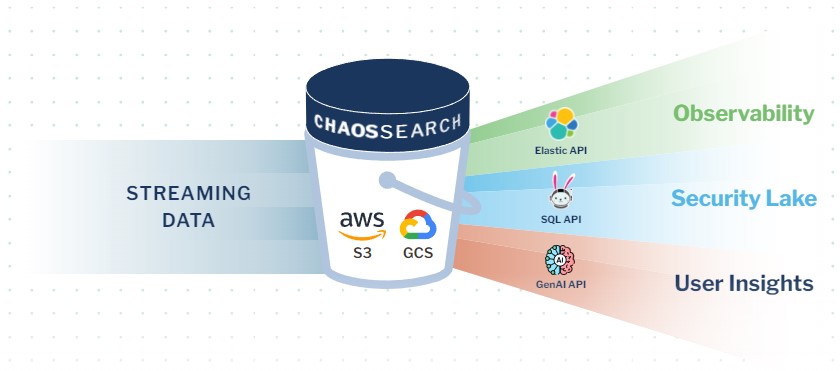6 Gaming Analytics Challenges and How To Solve Them
Mobile and video games generate huge amounts of data that can be captured and analyzed by game developers to power gaming analytics initiatives and improve games.
The most data-driven developers in the gaming industry use this data to detect and repair software bugs, improve monetization, and optimize the player experience - but the massive scale and complexity of data that’s available can create significant gaming analytics challenges, especially when attempting to extract the full value from data or enable robust gaming analytics use cases with legacy data analytics technologies.

In this blog, we highlight six of the biggest challenges associated with gaming analytics and how developers can address those challenges to maximize the value of their gaming analytics initiatives.
Why is Gaming Analytics Important?
Gaming analytics provides developers with the insights they need to repair bugs and improve software performance, enhance player acquisition and engagement, balance gameplay, reduce churn, and optimize revenue generation. Here’s how:
- Player Acquisition and Onboarding - Gaming marketers can track and monitor first user flow interactions to identify bottlenecks or drop-off points in the player acquisition process and optimize the onboarding process for new players.
- Player Experience - Game developers can leverage user behavior and engagement data to understand player behavior and determine which features are driving the most user engagement and satisfaction. From there, developers can take steps to optimize the game experience by making the right game design choices or adding features that are most likely to delight their users.
- Player Retention - Gaming data can reveal valuable information about the challenges or frustrations typically faced by players before they stop playing a game. Developers can use this information to start measuring churn rates, predicting player churn, and designing away experiences that negatively impact player retention.
- Monetization - One of the most valuable applications in gaming analytics is optimizing game monetization. Gaming companies can use data to track subscription buys or in-game microtransaction purchases, identify top-selling items or big-spending players, and optimize their pricing and offers to increase revenue.
- Game Balancing - Game developers use data to identify potential balance issues in multiplayer games and implement solutions to keep their games fun and fair for dedicated players.
- Bug Detection - Gaming developers can use data to detect software bugs or other unexpected behavior in their products and correct those issues before they lead to unbalanced gameplay or negative user experiences.
6 Gaming Analytics Challenges and How to Solve Them
1. High Data Storage/Analytics Costs at Scale
The Challenge: As a game grows in popularity and expands its user base, it generates exponentially larger amounts of data that can become increasingly costly for game developers to capture, aggregate, store, manage, and analyze.
The rich variety of data that game developers can capture with modern logging systems includes:
- Player demographic data (e.g. age, race, gender, location),
- Player personal data (e.g. name, birthday, address, contact information),
- Player financial data (e.g. credit card data, payment accounts, etc.),
- Player engagement data (e.g. frequency of play, average session length, total time played),
- Player performance data (e.g. level-ups, scores, experience points gained, win rates, achievements completed, etc.),
- In-game action/event data (e.g. areas visited, quests started/finished, items purchased/obtained, etc.),
- Monetization transactions (e.g. subscription purchases, ad clicks, microtransactions purchases, etc.), and
- Social interactions (e.g. chat logs, audio messages, items trading or gifting).
The Solution: To avoid high gaming analytics costs, developers need scalable and cost-effective data storage along with a robust data processing system that can efficiently normalize, index, and analyze diverse datasets at scale.
2. Cross-Platform Integration
The Challenge: Cross-platform gaming analytics requires game developers to collect, integrate, and store gaming data from multiple platforms, including PC, mobile devices (Android and iOS), and gaming consoles (e.g. Microsoft Xbox, Sony Playstation 4/5, Nintendo Switch, etc.).

Cross-platform games like PUBG are available on PC, mobile, and gaming consoles. Integrating data from all of these sources can pose technical and operational challenges for game developers.
Many games are available on more than one platform, and developers want to integrate gaming data from across platforms so it can be analyzed together. Some games offer multi-platform experiences, where a single player interacts with the game on more than one platform. When this is the case, developers want a single integrated view of player behavior/interactions across multiple platforms to better understand the user journey.
The Solution: Developers should implement a data integration tool that can ingest data from multiple sources, normalize or cleanse the data, and transfer it to a centralized repository where it can be stored and indexed together to support gaming analytics use cases.
3. Complex Querying Needs
The Challenge: Complex querying needs are a gaming analytics challenge that arises from the highly varied nature of gaming data that may be collected by game developers. This includes both structured data (stored in tabular format in relational databases) and unstructured data that doesn’t follow any conventional data model. To support various gaming analytics applications, developers may need to perform full-text search on unstructured data, execute SQL/relational queries against structured data, or process either type of data with machine learning (ML) algorithms.
But most analytics tools don’t offer multi-model data access, so game developers end up moving or replicating big data across multiple tools to support gaming analytics use cases. This adds significant cost and complexity to the gaming analytics program.
The Solution: Game developers can overcome this gaming analytics challenge by adopting modern analytics tools with support for relational queries, full-text search, and machine learning workloads on the same data representation.
4. Real-Time Analytics
The Challenge: Many gaming analytics applications require real-time information and insights, including things like:
- Personalization - Delivering personalized experiences, recommendations, in-game offers, or advertisements based on real-time user engagement patterns.
- Detecting Hackers/Cheaters - Detecting anomalous events or user behavior that could indicate dishonest manipulation of the game.
- Monetization - Leveraging the latest monetization and user engagement data to optimize microtransaction pricing and offers or drive subscription sales.
Achieving real-time gaming analytics requires a more complex data infrastructure with the ability to continuously analyze large volumes of newly generated data. The added cost and complexity of building and managing a real-time analytics capability can pose a significant challenge for game developers.

ChaosSearch indexes streaming data in near-real time, enabling low-latency analytics for gaming applications.
The Solution: Game developers should leverage streaming data processing tools like AWS Kinesis that leverage scalable cloud infrastructure to continuously ingest and process data generated from the gaming ecosystem for real-time analytics applications.
5. Integrating External Data
The Challenge: Some game developers may want to integrate the data they collect from inside the gaming ecosystem with qualitative data that originates outside the game.
For example, a developer might want to cross-reference sales or transaction data from in-game microtransactions with social media sentiment analysis to understand how users are responding to a new item, sale, or offer within the game. Or, a developer might want to correlate feedback on gaming review or distribution platforms with data from user sessions to better understand the causes of good or poor user experience.
The Solution: To effectively integrate external data into the gaming analytics program, developers need systems for monitoring outside data sources (e.g. social media, review sites, etc.), ingesting only the relevant information, and integrating that information with data from the gaming ecosystem.
6. Data Security and Privacy
The Challenge: Game developers often collect and store sensitive information about users, including personally identifying information (e.g. name, mailing address, etc.) and financial information, such as credit card numbers or payment accounts used for subscription or microtransaction payments.
This creates a challenge for game developers when it comes to making use of sensitive user data. Developers want to freely access and analyze this data as part of their gaming analytics programs, but there’s also a need for more stringent access controls and other security measures to stay compliant with data security/privacy regulations, avoid exposing sensitive data, and maintain user trust.
The Solution: To overcome this challenge, developers should implement features like data encryption and anonymization to ensure the security/privacy of user data while keeping the data accessible for gaming analytics.
Overcome Key Gaming Analytics Challenges with ChaosSearch
Developers face significant gaming analytics challenges when using traditional data platforms and architectures, especially when it comes to storing, managing, and analyzing data at scale.
ChaosSearch helps developers overcome gaming analytics challenges by enabling an efficient approach that delivers cost-effective storage at scale, multi-model analytics capabilities, and no limits on data retention.
ChaosLakeDB, our proprietary data lake database, attaches directly to Amazon or GCP cloud object storage. Developers can land data from multiple gaming platforms or external sources directly in cloud storage buckets and automatically index the data with ChaosSearch to enable live full-text search across multi-structured data sets, relation queries using SQL, and support for GenAI.
Our proprietary data indexing format offers data compression ratios of up to 90% with no loss of resolution, so developers can retain and analyze more of their data to support a full range of gaming analytics initiatives.
Ready to learn more?
Watch the free on-demand webinar Unleash the Potential of Your Log and Event Data to learn more about how Chaos LakeDB can help developers overcome analytics challenges and make the most of their gaming data.





